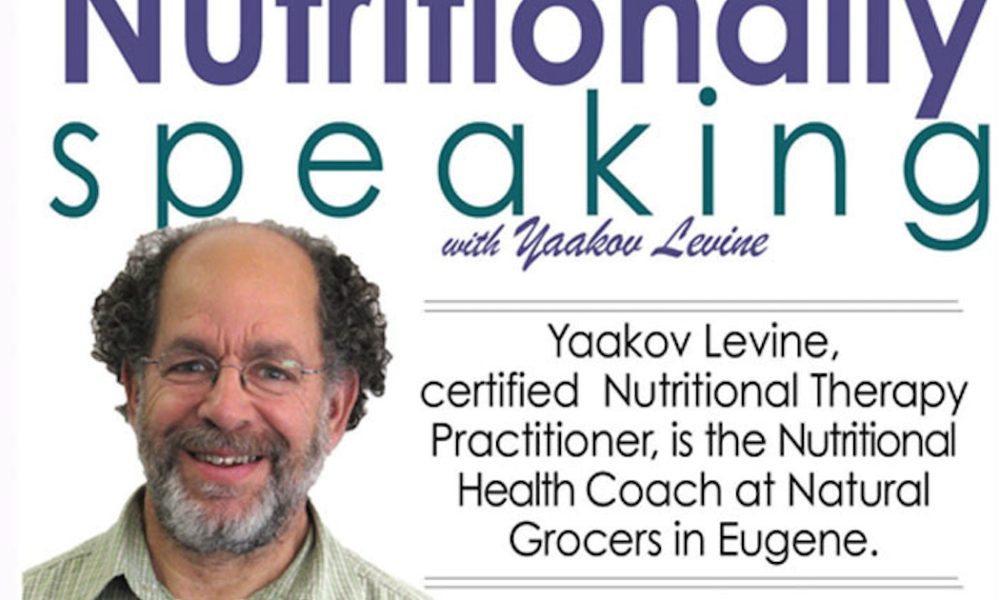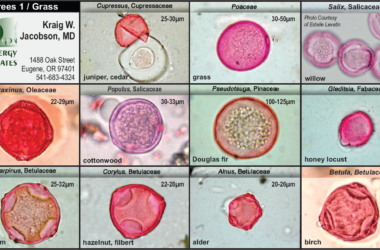
As we start the second month of 2019, how are you doing with your New Year’s Resolutions to eat healthier? Sometimes we need a Resolution Reset. Food serves a dual purpose for us, when we choose foods wisely the end result is that we should benefit nutritionally and experience optimum health. As a result of properly preparing and seasoning our food, we will experience the flavors of the foods as they mingle on our palates. There are many choices to make in this culinary adventure towards health and happiness. The following are a few of my favorite healthy food choices to include on your plates, and to get back on track with your resolutions – it’s not too late.
Michael Pollan, noted author of ”The Omnivore’s Dilemma” and ”In Defense of Food” begins the latter work with the suggestion that we: ”Eat food. Not too much, Mostly plants.” Due to the increased use of herbicides such as Roundup with genetically modified organisms and conventionally grown produce, look for Organic certification. A favorite vegetable of mine is Collard Greens.
Collards are members of the family of cruciferous vegetables, and are rich in cancer-preventing phyto (plant) chemicals. One cup of collards provides as much calcium as a glass of milk and five grams of fiber. Collards and other plants in this family are also great sources of the important antioxidants, beta-carotene, lutein and zeaxanthin – especially important for healthier vision. Favorite ways to prepare collards is to sauté them in some vegetable or chicken broth, and then top them with poached eggs and butter.
Fruit can be an especially healthy choice. Very popular these days, is the Paleolithic diet, which includes foods we ate before we had agriculture. We foraged for wild fruits, which for the most part were tart wild berries. Berries can be frozen for enjoyment during the winter months. Frozen blueberries may even be healthier than fresh since the freezing process breaks up the cell walls to make more of the antioxidants available.
According his studies, neuroscientist Dr. James Joseph has determined that blueberries are the ultimate memory food. Studies have been performed using bilberries, a close cousin to blueberries, finding them helpful to support vision, preventing eye strain and improving night vision. Toss some blueberries in a salad, a smoothie, or in a cup of full fat yogurt for healthy treat. Fiber rich apples are another great fruit to include since as we know: ”An apple a day will keep the doctor (bills) away.”
While avoiding corn and potato chips is a good idea, we all enjoy a crispy treat now and then. Try some raw nuts and ”crunchy” raw nut butters. In the Nurses’ Health Study they found that those that included nuts in moderation in their diet had a lower BMI or Body Mass Index, a measuring method to determine whether we are overweight. Raw almonds are a great source of monounsaturated fats and are part of the health promoting Mediterranean diet.
Research shows that including these nuts in your diet will result in lower cholesterol and a healthier and stronger cardiovascular system. A few almonds or a bit of almond butter and a small apple is a great snack, or pre-workout food. I soak my almonds in sea-salted water, then dehydrate them at 110 degrees in a food dryer or oven, which results in a great tasting ”crispy” snack alternative to chips.
The next foods to include this year are cultured foods, including cultured dairy and vegetables. When I think of milk as a beverage, I do not consider it a healthy choice unless it is in its raw state. Once it is processed, pasteurized and homogenized it is not very digestible and many of the benefits have been destroyed. This processing damages enzymes, reduces vitamin content, denatures the proteins and kills beneficial bacteria. I take issue particularly with ”ultra”-pasteurized dairy products where even higher pressure and temperatures are used to increase the shelf life resulting in an even less healthy product.
By culturing raw milk (yogurt/kefir) we can we can support the healthy balance of flora in our digestive tracts, resulting in a stronger immune system and improved energy. Another way we can support healthy digestion is to include a tablespoon of cultured vegetables with meals. Sauerkraut and Kimchi are two easy ways to make cultured vegetables; kimchi being the spicier choice and great as a winter warming food along with the digestive benefits. We will continue this Resolution Reset in next week’s part two. Salud!
At Natural Grocers in Eugene, where I am the store’s Nutritional Health Coach, we offer free classes that include plenty of information about healthy eating choices, and free one-on-one health coaching sessions (call 541-345-3300). Please ”like” our Natural Grocers-Eugene Facebook page. Find our store’s schedule of free classes at: https://www.naturalgrocers.com/store-location/eugene/.







